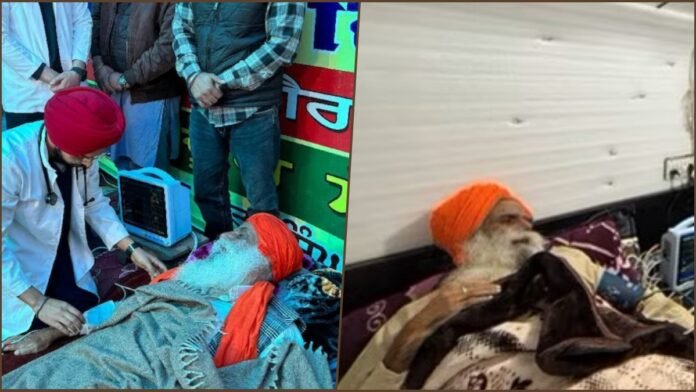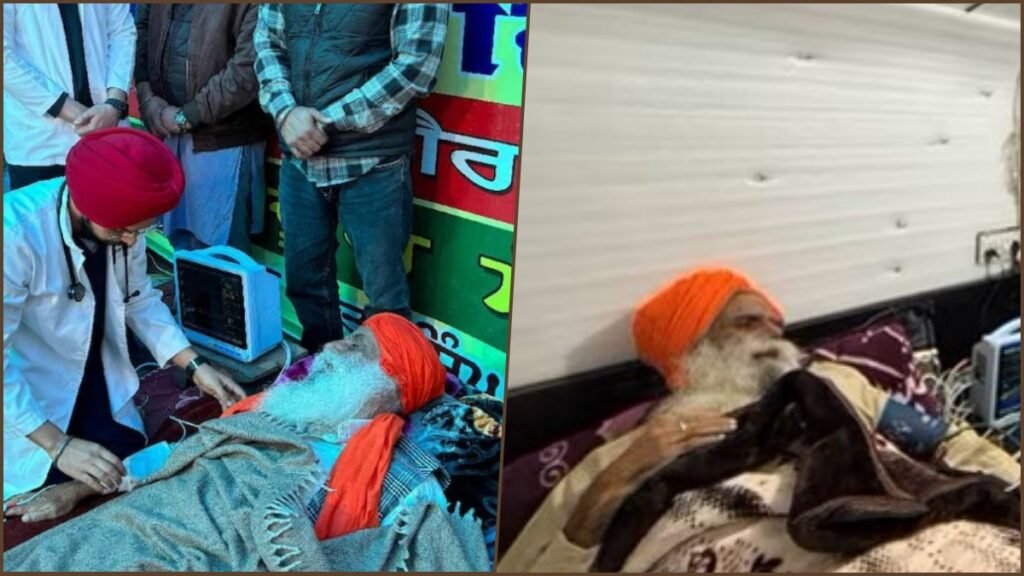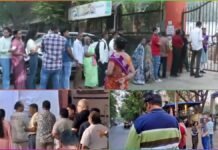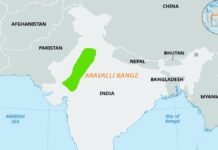
Key Takeaways:
- Supreme Court Intervenes: The Supreme Court has directed the Punjab government to shift fasting farmer leader Jagjit Singh Dallewal to a temporary hospital for round-the-clock health monitoring.
- Fasting Farmer’s Protest: Dallewal, 70, has been on a hunger strike since November 26, demanding a legal guarantee of Minimum Support Price (MSP) for crops.
- Government Criticized: The Punjab government faced criticism from the bench for delaying Dallewal’s medical examination.
- Farmer Protests Continue: Farmers, under the banners of Samyukta Kisan Morcha (non-political) and Kisan Mazdoor Morcha, have been protesting at Punjab-Haryana borders since February 13.
New Delhi: In a significant development, the Supreme Court on Friday directed the Punjab government to transfer fasting farmer leader Jagjit Singh Dallewal to a nearby temporary hospital at the Khanauri border for 24/7 health monitoring. The court emphasized the urgent need to ensure Dallewal’s health remains stable as his hunger strike nears its fourth week.
A bench of Justices Surya Kant and Ujjal Bhuiyan instructed Punjab’s Advocate General Gurminder Singh to submit an affidavit confirming the transfer arrangements. Singh informed the court that medical tests, including an ECG and blood analysis, had been conducted on Dallewal on Thursday, and his health condition is currently stable.
The bench scheduled a follow-up hearing later in the day at 2:30 PM.
Fasting for Farmers’ Rights: The Struggle for MSP
Jagjit Singh Dallewal, 70, has been on a hunger strike at the Khanauri border since November 26, demanding a legal guarantee for Minimum Support Price (MSP) for crops, a longstanding issue for Indian farmers. His protest is part of a broader agitation led by the Samyukta Kisan Morcha (non-political) and Kisan Mazdoor Morcha, groups that have been camping at the Punjab-Haryana borders since February 13.
The protests began after the Haryana government erected barricades on the Ambala-New Delhi highway to prevent farmers from marching to Delhi. Despite the physical blockade, the farmers’ demands, including legislation for MSP, remain resolute.
Supreme Court’s Guidance
Earlier on Thursday, the bench referred to the decade-long hunger protest of civil rights activist Irom Sharmila, who was under medical supervision throughout her protest. The court urged the Punjab government to persuade Dallewal to undergo regular health checks, emphasizing the state’s responsibility for the well-being of protesters.
The court criticized the Punjab government for its delayed response in addressing Dallewal’s medical needs. This move is seen as a measure to ensure both the continuation of the protest and the safety of the elderly leader.
The Larger Movement
The ongoing protests at the Khanauri and Shambhu borders are a continuation of the farmers’ struggle, which gained national attention during the 2020-2021 farmer protests against the three contentious farm laws. The demand for a legal guarantee of MSP has been a rallying point, with farmers insisting that it is crucial to protect their livelihoods from market volatility.
The current agitation highlights broader grievances, including concerns over agrarian distress, inadequate price support, and perceived government inaction.
What Lies Ahead
As the Supreme Court monitors the situation, the focus remains on balancing the protesters’ rights with their safety. The farmer agitation at the borders underscores the enduring tension between agrarian communities and policy-makers over MSP, a critical issue that impacts millions of farmers across India.
The court’s intervention signals a commitment to preserving democratic dissent while addressing the immediate humanitarian concerns surrounding Dallewal’s health. As discussions continue, the spotlight remains on whether the government will engage with farmers’ demands to find a lasting resolution.

The unfolding events reflect the critical juncture at which agrarian protests intersect with governance and judiciary oversight, with the nation watching closely for outcomes that could shape the future of India’s farming community.



















































